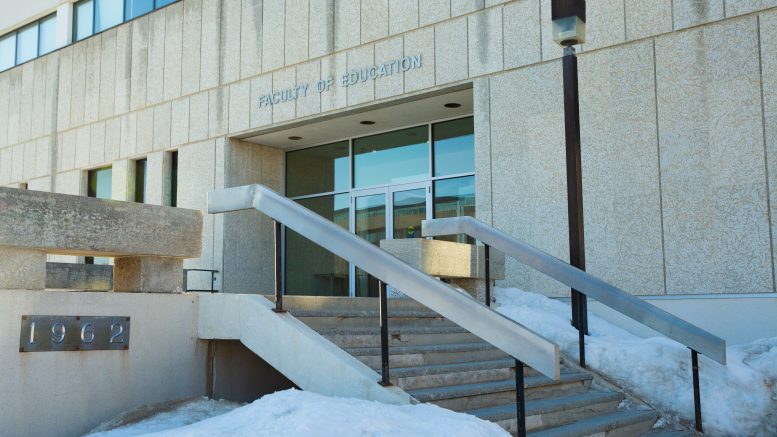As part of the faculty of education’s Reconciliation Action Plan, new scholarship opportunities are available for First Nations, Inuit and Métis students entering post- secondary programs at the U of M. These scholarships will be available to first-year undergraduate, graduate and doctoral students in the faculty of education.
Associate dean (Indigenous education) in the faculty of education Frank Deer said he wants to make sure that Indigenous students are aware of these opportunities.
“Many people at our university say that many of their awards actually go un-awarded, and maybe one of the reasons for that is because people don’t actually know about them,” he said.
The faculty’s Reconciliation Action Plan focuses on four areas — Indigenous engagement, teaching, research and scholarship and community engagement.
The action plan was developed in response to the Truth and Reconciliation Commission of Canada’s 94 Calls to Action, particularly numbers 62 to 65, which centre on education for reconciliation.
These recommendations call on governments to work with educators, Indigenous peoples and residential school survivors to incorporate Indigenous knowledge and history into curriculums and provide funding to advance reconciliation in various ways.
They also call on governments to create senior government positions that focus on Indigenous content in education and work with post-secondary institutions and educators, Indigenous peoples and the National Centre for Truth and Reconciliation to create a program dedicated to reconciliation research.
Deer stated that recruitment and retention of First Nations, Inuit and Métis students is one of the Reconciliation Action Plan’s most important goals. He said that, in alignment with this goal, the faculty of education wanted to improve financial supports for Indigenous students, and so, decided to create the new scholarships.
Deer explained that the faculty felt entrance scholarships were the best approach, with the intention being that the scholarships would extend to cover multiple years of recipients’ education. He highlighted the undergraduate scholarship as an example, explaining that recipients of the new undergraduate award would receive funding for two years, the length of the education program at the U of M.
Research has repeatedly identified a lack of Indigenous-specific financial aid, scholarships and bursaries as a barrier to education for Indigenous post-secondary students. Deer said that he hopes the new scholarships will allow Indigenous students to focus on their studies without having to balance both a full-time job and full-time education in order to afford rent and other essentials.
However, he said that as a faculty, “there is also the hope for us that our students come to our program ready to learn, ready to engage, [and that] they are encouraged by the support that we’re providing.”
“We hope this will help them become a better member of the faculty of education community,” Deer added.
There are three categories for the new awards. For the undergraduate and master’s degree entrance scholarships, successful applicants will receive $5,000 per year for two years.
Recipients beginning their pursuit of a PhD will receive $10,000 per year for two years.
The master’s and PhD scholarships also include an option to renew the award for a third year.
Deer emphasized that these scholarships are available to both full-time and part-time students.
To find out if you are eligible for the new scholarships, as well as how to apply, please visit the faculty of education’s financial aid and awards webpage.



